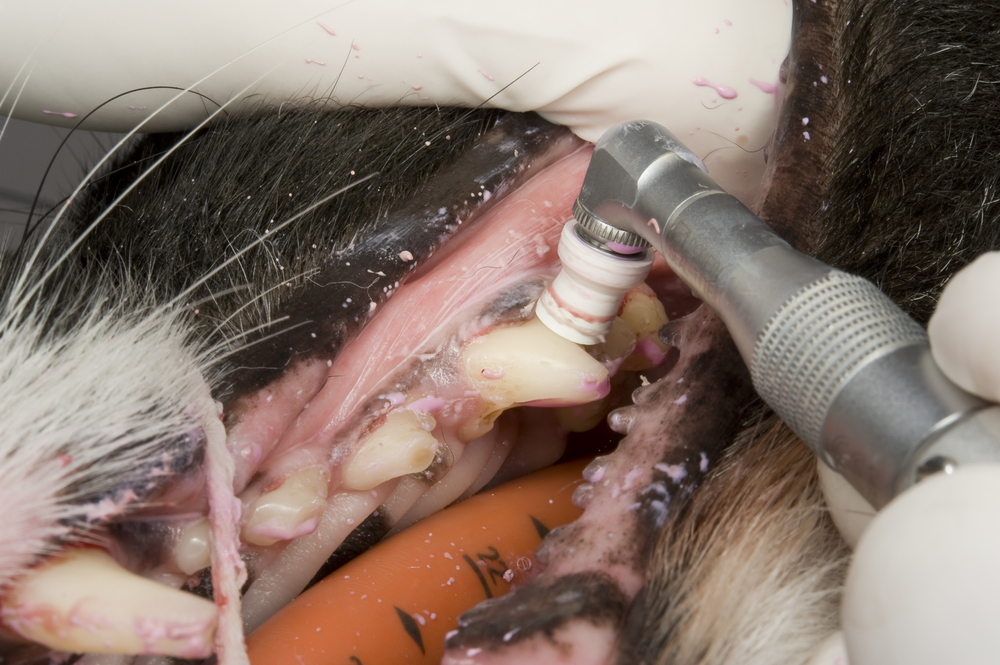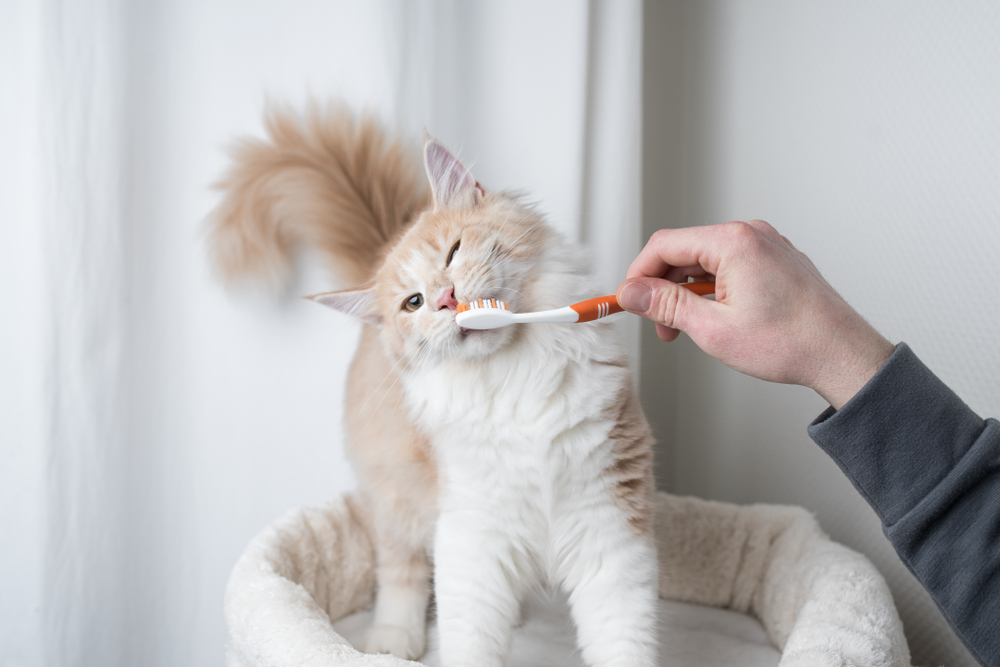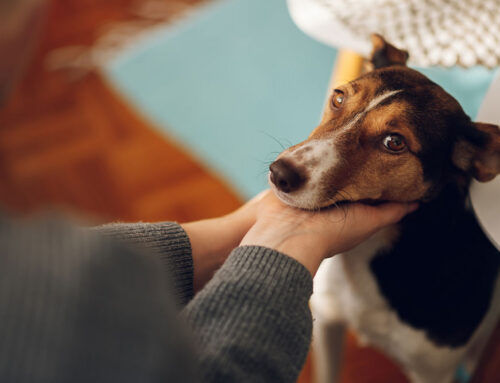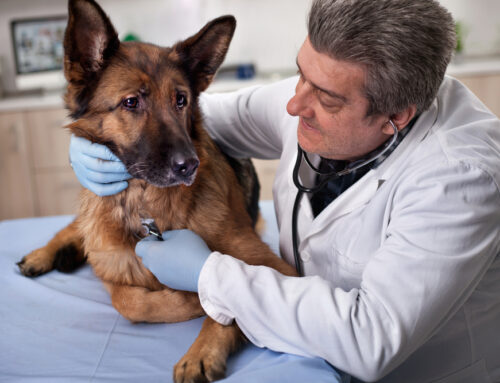Dental care is one of the most important—and often most overlooked—components of a pet’s health. Periodontal disease is the most diagnosed dental disease in pets, and almost all pets have dental disease signs by age 3. Like humans, pets need regular dental exams and cleanings as well as an at-home dental care routine. Our team at Guam Pet Hospital is celebrating National Pet Dental Health Month by sharing the following tips to keep your pet’s mouth fresh, clean, and disease-free.
Periodontal disease in pets
Periodontal disease—or dental disease—is a bacterial condition that spreads below the gumline and attacks the vulnerable tooth root, ligaments, and surrounding jawbone. Hours after eating, sticky plaque forms a slimy layer on your pet’s teeth that can harden into cement-like tartar, trapping bacteria in and around the gumline. As dental disease erodes the tooth’s root and surrounding structure, the tooth becomes unstable and painful. Over time, dental disease can result in chronic inflammation and organ damage, as bacteria in the bloodstream travel to the heart and kidneys.
Signs of dental disease in pets
Your pet may not show obvious pain in the initial stages of dental disease. Bad breath is often one of the earliest signs of dental disease, along with:
- Brown or yellow tartar buildup on their teeth
- Red, swollen gums
- Broken or loose teeth
- Decreased appetite
- Swallowing food whole, instead of chewing
- Blood in their water bowl or on their toys
- Shying away from being touched near their face
- Unexplained grumpiness
If you notice any of these signs in your pet, schedule a dental evaluation with our veterinary team so we can assess their dental health.
At-home dental hygiene for your pet
Dental disease prevention starts at home. You have a daily dental care routine, and your pet also should have one. If possible, introduce a dental hygiene routine to your pet when they are young and stay consistent to reduce their risk of developing problems down the road. By brushing your pet’s teeth daily, you can reduce the amount of plaque and bacteria and help keep dental disease at bay. Use these tips to brush your pet’s teeth at home:
- Choose an appropriate toothbrush — Pet toothbrushes are smaller and fit your pet’s mouth better than regular human toothbrushes. Introduce the brush to your pet and let them sniff and chew on it. Gently rub the outer surface of the visible teeth.
- Use pet-friendly toothpaste — Purchase toothpaste specifically made for pets, which is safe and comes in enticing flavors such as beef, chicken, and fish. Never use human toothpaste, which contains fluoride that can harm pets if swallowed
- Start slowly — Start by letting your pet lick a small amount of toothpaste off your finger, and work up to slowly rubbing your finger around their teeth surfaces. Once your pet is comfortable with finger brushing, slowly insert the toothbrush into their mouth and gently scrub their teeth. Remember to positively reinforce teethbrushing by following up with praise and a special treat.
In addition to regular toothbrushing, your veterinarian can recommend dental products and treats. When choosing dental products for your pet, look for ones that carry the Veterinary Oral Health Council (VOHC) seal, which guarantees the product will slow plaque and tartar accumulation. Avoid giving your pet hard items, such as hooves, antlers, and bones, to chew because they can wear down your pet’s enamel or fracture their teeth.
Professional pet dental cleanings

To maintain your pet’s dental health, bring them in for a dental exam at least once a year. A professional cleaning may be recommended, along with dental X-rays to show the 60% of each tooth—and potential dental issues—that is buried under the gumline. A complete professional pet teeth cleaning includes:
- Scaling tartar from the tooth surfaces, above and below the gumline
- Polishing each tooth to remove microscopic etchings created by scaling so bacteria can’t adhere to them
- Probing the gumline for pockets that indicate periodontal disease
- Irrigating below the gumline to flush away bacteria and debris
- Rinsing with an antimicrobial solution
Dental disease is a serious condition, but it can be prevented with an at-home dental care routine and regular dental examinations. Contact our team at Guam Pet Hospital to schedule a dental examination for your pet.








Leave A Comment